Space
-
 Space
SpaceJWST spots the first known ‘steam world’
Astronomers have found a world shrouded in an atmosphere of water vapor, orbiting a star 100 light-years away.
-
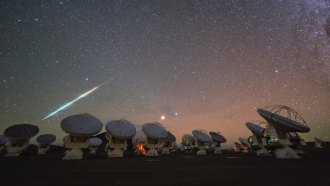 Planetary Science
Planetary ScienceThe cataclysmic origins of most of Earth’s meteorites have been found
Just a few smashups in the asteroid belt may account for 70 percent of Earth’s meteorites, limiting what’s known about our solar system’s history.
-
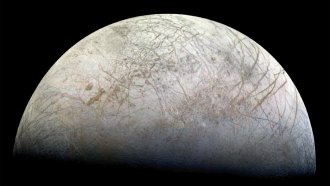 Planetary Science
Planetary ScienceNASA’s Europa mission is a homecoming for one planetary astronomer
Over her long career, Bonnie Buratti has seen the search for life in the solar system go from a joke to a flagship mission.
-
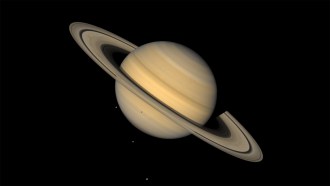 Planetary Science
Planetary ScienceSaturn’s first Trojan asteroid has finally been discovered
Saturn joins the sun’s other giant planets that have Trojans, space rocks that orbit along the same path.
By Ken Croswell -
 Astronomy
AstronomyRunaway stars could influence the cosmos far past their home galaxies
Dozens of stars fleeing a neighbor of the Milky Way suggest these escapees could have an outsized influence on their cosmic surroundings.
-
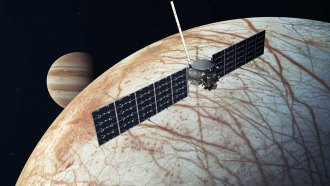 Planetary Science
Planetary ScienceEuropa Clipper has launched to solve an alien mystery
Launched October 14, the spacecraft will repeatedly buzz Europa in search of water, energy and organic compounds.
-
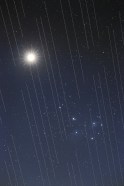 Space
Space50 years ago, satellites threatened astronomers’ view of the cosmos
As satellite launches ramp up and the spacecraft clog the skies, astronomers fear for their data.
-
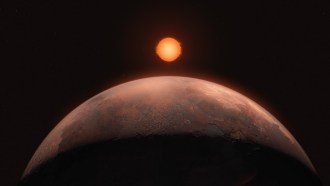 Astronomy
AstronomyBarnard’s star has at least one planet orbiting it after all
After decades of searching, a telltale gravitational wobble points to an exoplanet orbiting the nearby red dwarf every 3.15 days.
By Sid Perkins -
 Astronomy
AstronomyBetelgeuse has a tiny companion star hidden in plain sight
Betelgeuse has a sequel — in the form of a companion star that's about the same mass as the sun, orbiting it about once every 2,100 days.
-
 Astronomy
AstronomyStarlink satellites’ leaky radio waves obscure the cosmos
Starlink satellites unintentionally emit radio waves that appear more than 10 million times brighter than natural sources, as seen by ground-based radio telescopes.
By Sid Perkins -
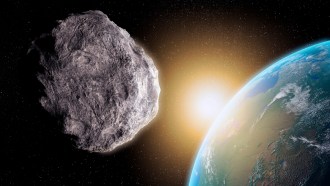 Physics
PhysicsX-rays from nuclear blasts could defend Earth from asteroids
The X-ray pulses could deflect asteroids up to 4 kilometers wide, a new study suggests.
By Nikk Ogasa -
 Cosmology
CosmologyHow did dark matter shape the universe? This physicist has ideas
Theoretical physicist Tracy Slatyer proposes new scenarios for dark matter and helped discover the Fermi bubbles.
By Adam Mann